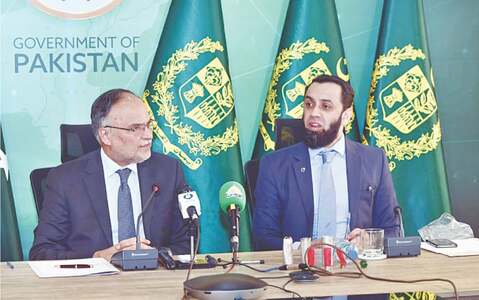HYDERABAD, Nov 14: Former ambassador to China and Philippines, Dr Maqbool Ahmed Bhatty, has said that China is the only major power in history which has risen to greatness through peaceful means.
He was delivering keynote speech on China’s peaceful rise and its impacts on South Asia in an international seminar on “Strategic implications of rise of China”, organised by Area Study Centre Far East and South East Asia, University of Sindh.
Dr Bhatty said that China’s peaceful rise has had important ramifications on South Asian security and other interests. He said that Pakistan and India became significant players during the cold war on opposing sides and added that since 9/11, US led West links the terrorist threat with the Islamic World.
Dr Bhatty said that Pakistan as a major Islamic country and the only one with nuclear capability remains a focus of suspicion on the part of the West and this makes its time tested relationship with China a crucial factor for its security.
He said that future demands cooperation between China, India and Pakistan and their immediate neighbours to work together, utilising skills, technologies and resources available for the welfare of 40 per cent mankind in the vast region.
Former ambassador Dr Ross Masood Hussain, presenting his paper on “strategic implications for the United States of America”, in the first working session of the seminar, presided over by Dr Wu Chunsi, Deputy Director American Studies, Shanghai Institute of International Affairs, said that the challenge presented by a rising China is the principal issue facing American foreign policy planners today.
Dr Jiegen Zhang from Centre for South Asian Studies, Fudan University of China, in his paper on “China-India-Pakistan trilateral relations” said that India and Pakistan are China’s two most important neighbouring countries.
He, however, said that India and Pakistan remain confrontational though their political relationship has improved in recent years. Therefore, it is not easy for China to keep and develop highly friendly relationship with the two countries at the same time.
Dr Wu Chunsi, Deputy Director, American Studies, Shanghai Institute of International Affairs, presenting her paper on “China: Driving force for regional peace and prosperity”, said that after 1978, China changed its priority from class struggle to economic development and the improvement of people’s life.
She said that national strategy of development requires the Chinese foreign policy to put its highest priority on maintaining a peaceful and stable international environment and added that for that purpose, China dismissed the ideological factor from its foreign policy, which gave China more room to cooperate with Western countries and to join in the international community and set aside territorial or border disputes with neighbours to push forward cooperation and co-development with them.
Bhaskar Koirala from China Study Centre, Nepal, also presented a paper.















































Dear visitor, the comments section is undergoing an overhaul and will return soon.